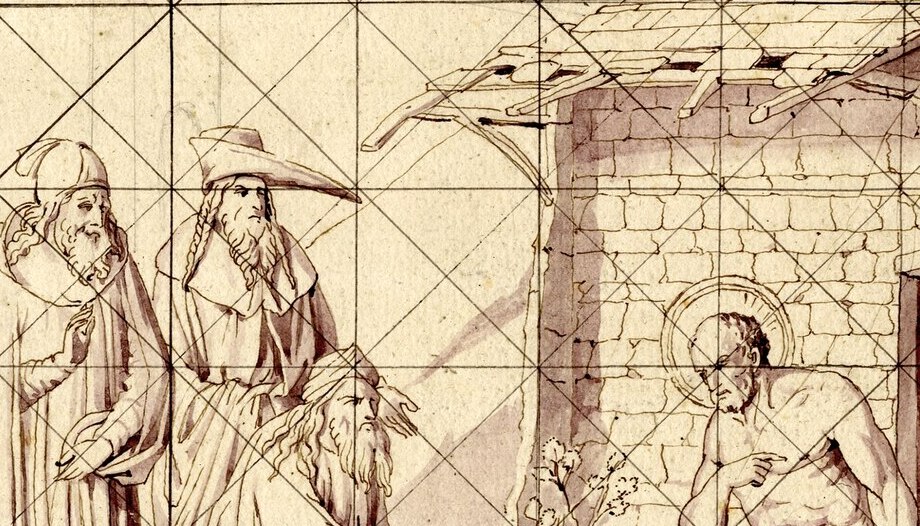The saint Job, the protagonist of the Old Testament book of Job, was a man of admirable patience in the land of Hus. In summarywas a rich man, married, with ten children, servants, land and cattle. He feared God, who tested him with the death of his children, his ruin and the loss of his health. He did not curse God or rebel against him, but accepted him.
Having overcome all trials with patience, the Lord gave him health, ten more children and prosperity, and he died an old man. The book of Job depicts a model of patience and holiness, like the suffering Christ. Job says: "Ýahweh gives, Yahweh takes away, blessed be Yahweh!".
As a curiosity, the young Karol Wojtyla, in the first months of 1940, when the Second World War and the occupation of Poland had just begun, composed the theatrical drama Job, a reflection on human suffering. Almost at the same time, the same publishing house launched last year Jeremiahalso of the young Wojtyla, later a saintly pope.
Apostle, Doctor of the Church
On May 10th, the liturgy also celebrates St. John of AvilaSpanish priest of the 16th century, known as the "apostle of Andalusia" for his evangelizing work in that region. He is considered patron saint of the Spanish clergyPope Benedict XVI proclaimed him Doctor of the Church in 2012. Pope Francis established that the commemoration of St. John of Avila be inscribed in the general Roman calendar on May 10, as a free memorial.
St. John of Avila was born in Almodovar del Campo (Ciudad Real, Spain) in 1499. After studying in Salamanca and Alcalá, he was ordained a priest in 1526. He distributed his goods among the poor and decided to go to the Indies. But the archbishop of Seville managed to keep him in his diocese, where he developed an intense apostolic activity.
He preached tirelessly, wrote 'Audi, filia'.
Unjustly accused of heresy by the Inquisition, St. John of Avila wrote from prison an important part of his spiritual doctrine. He was absolved in 1533. In Granada he converted St. John of God. He founded colleges for the formation of the clergy, later converted into seminaries, and addressed memorials to the Council of Trent on the situation of priests. He preached tirelessly, addressed many souls personally or by letter, and died in Montilla (Cordoba) on May 10, 1569.
His main work is entitled Audi, filiaa systematic and comprehensive treatise on the spiritual life, which has become a classic of spirituality, has written Manuel Belda. The Spanish saint was beatified by Leo XIII on April 6, 1894. Named Patron of the Spanish secular clergy by Pius XII on July 2, 1946, he was canonized by St. Paul VI on May 31, 1970.
Martyrs, Saints Solangia and Beatrice d'Este
The liturgy of May 10 also includes holy martyrs such as Alfio, Filadelfio and Cirino, born in Vaste (Lecce, Italy), imprisoned for being Christians, and tortured to death in Lentini (Sicily), in 253, during the persecution of Emperor Valerian.
Also celebrated today are women like Saint Solangia, a shepherdess from Bourges, Aquitaine (France), who rejected a son of a count on the grounds that she had consecrated herself to God, and he beheaded her (9th century). The people immediately considered her a martyr of chastity.
The Italian Blessed Beatrice d'Este, from Padua (Italy) in 1200, was orphaned at the age of six. At 14, overcoming the opposition of her family, she entered the monastery of Benedictine nuns of Solarola, near Padua. She was an example of austere and virtuous life, and died in 1226.







